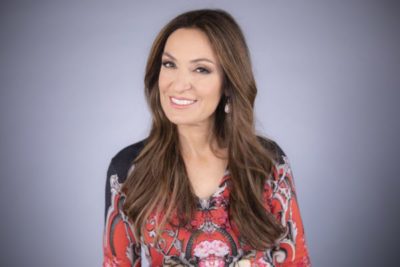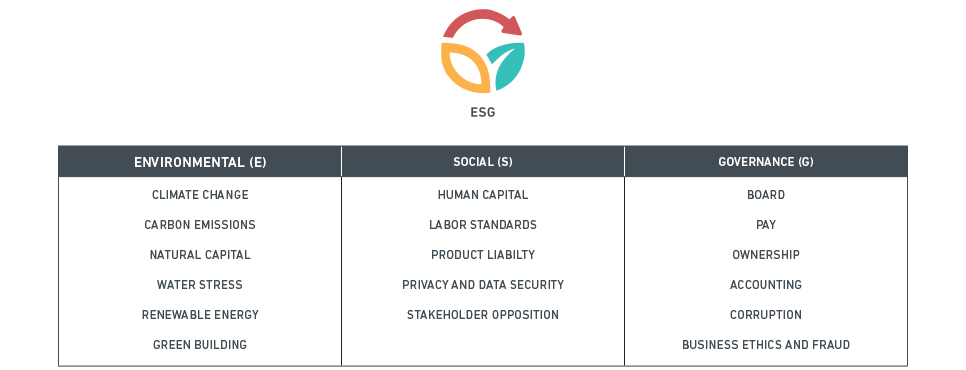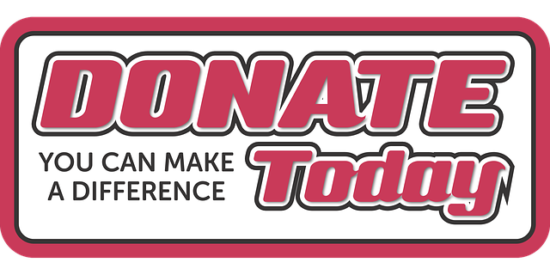Debt consolidation is combining multiple loans into a single loan. Companies that offer to help you consolidate your debt can use a variety of methods and it’s vital that consumers understand the differences in each plan. Many promote too-good-to-be-true debt relief programs, which rank high on the list of complaints received by the Federal Trade Commission. A NJ bankruptcy attorney claims these programs are not only a bad idea – they are a scam. Click to read more.
Read moreArticles
Here's some happy news for college students - federal student loans are about to get cheaper. Each year, Congress sets the fixed interest rates for federal student loans. It only affects new loans - not existing loans. Read on for more detail.
Read moreBond yields remain stubbornly low. You can achieve a 3% dividend yield on a reasonably diversified portfolio of high dividend stocks, which is about the same as the yield of an intermediate term high quality bond portfolio. While I appreciate the appeal of using high dividend stocks instead of bonds, I remain unconvinced that it is appropriate for most investors. Keep reading for more detail including an article on the topic from Morningstar, a leading investment research firm.
Read moreIf you’re a Millennial, know this about financial planning: Time is still on your side, but it won’t be for much longer. If you wait too long, until you are in your 40s or 50s, you’ll have to save and invest a much larger portion of your income. Here are nine tips to shed whatever doubts may be holding you back and get started now.
Read moreOrganization isn’t complicated, but it is critical to our capacity for powerful functioning in this age of hyper connectivity. As our attention and concentration is pulled in multiple directions at any given time, agile productivity systems allow us to be more innovative, engaged and able to recognize new opportunities. Whether you are organizing your junk drawer or next year’s strategic plan, the process is universal. Follow these five simple steps to organize virtually anything.
Read moreSomething significant is happening in Social Security - people are retiring and taking their benefits later. In 1997, 57% of men claiming their retirement benefits under Social Security were 62, the earliest age at which one can do so. By 2017, that share had dropped to 34% because more people elected to put off claiming their benefits. I'm not sure why the study only involves men since women are also eligible for social security benefits, but I suspect the reasons to delay benefits apply universally.
Read moreMaintaining a successful long-term relationship, and continuing to thrive over the long haul, is a team effort. Both partners have to be all in, both emotionally and logistically. This goes beyond divvying up household duties and co-parenting: one responsibility that's easy to forget about is balancing love and money by managing your joint finances.
Read moreMany investors are using IRAs and 401(k)s to capture the double tax advantage of pre-tax investing and tax deferred growth. However, the triple tax advantage of Health Savings Accounts (HSAs) - pre-tax investing, tax deferred growth, and tax-free withdrawals - remains largely untapped. If you are enrolled in a high-deductible health insurance plan (HDHP), which are becoming more prevalent, then you should be using an HSA.
Read moreIt is that time of year to consider making an IRA Contribution. You have until April 15, 2019 to make a contribution for 2018. You can also make your 2019 contribution at the same time.
Read moreMy dad used to tell me there are two types of taxpayers in this world: tax minimizers and tax evaders. Smart business people are tax minimizers. These business owners do everything they can, within the law, to minimize their taxes. They plan. But dumb business people are tax evaders. Need help telling the difference?
Read moreThe spectrum of professionals who claim to offer financial advice is a broad one — so broad, in fact, that it can be difficult to define exactly what "financial planners" are and the kinds of skills they should bring to the table in their work with clients. To call him- or herself a financial planner, a financial professional should be trained and have demonstrated competency in multiple areas of finance, including cash flow, investments, retirement, tax, estate planning, risk management and insurance, and education funding. Here are five initial questions you can ask of your prospective financial planner to make sure you're not just getting lip service.
Read moreMany people do not realize that their prized possessions are drastically underinsured and inadequately protected because coverage for fine art and other valuables is very limited under a standard homeowners insurance policy. Should you consider a fine arts or collectibles insurance policy? Read the following article for more details:
Read moreCognitive decline, abetted by isolation, is a powerful force that makes aging parents easy targets for scam artists, misleading advertising and offers for high-priced, unnecessary goods and services. It’s difficult for clients to know when to step in and assist aging parents with their financial affairs. Conversations about money are uncomfortable, and aging parents may become defensive, suspicious or confused. Read the following article for tips on how to address this situation.
Read moreIf you are planning on hiring a financial advisor, you need to know the difference between an “investment plan” and “financial plan”. An investment plan maps out an investing strategy to help you meet your long and short term goals, such as retirement or buying a house. A financial plan is a more comprehensive evaluation of your financial situation that can address savings, budgeting, insurance, college planning, taxes, estate planning, and retirement, as well as investments. What services does your advisor provide?
Read moreNobody likes to think about illness or death, but planning is essential to protect your family and make sure your wishes are followed with regard to your assets and estate. Here are some easy, quick steps to get started.
Read moreSpreading holiday cheer doesn't have to end in a financial hangover. It is entirely possible to purchase gifts, be festive, and participate in this time of year without blowing a hole in your budget. Here are 5 useful tips to help you stick to your budget during this holiday shopping season that you can implement at no cost to you.
Read moreSeveral studies have shown a number of benefits when you buy from an independent, locally owned business, rather than a nationally owned business. This includes a reduced environmental impact, creating more local jobs, more investment in the local community, a stronger local tax base, and better service.
Read moreMany Baby Boomer parents confess that they either don’t know how to talk to their kids about money, have failed to set appropriate limits with their children or don’t feel confident in their own financial management skills to share insights. As a result, 1 in 3 young adults are still living at home. If you’ve found yourself still rooming with your millennial child, follow these tips to help get your financially-dependent child off your payroll.
Read moreIf the very idea of financial planning makes you break out in hives, you’re not alone. A new study found that perceived financial well-being — feeling secure about not only the state of your current situation but how well you’ve planned for the future — holds the key to your overall well-being. Your financial security can affect you as strongly as job satisfaction, relationship stability, and physical health combined.
Read moreLeadership is a both a give and take relationship. If you want employees to go the extra mile, you have to go the extra mile too. If you want loyal employees - treat your people well. Too often bosses do the exact opposite. Remember, people don’t quit bad jobs, they quit bad bosses. If you are the boss and aren't doing the 7 things in the following article, your employees will probably be looking for better opportunities elsewhere.
Read moreBuying a business generally is less involved and less costly than building a business from the ground up. An existing company already generates revenue and has an existing customer base. The challenge is finding the right business to purchase. Some important things to consider:
Read moreThe dreaded “Kiddie Tax” is undergoing some changes in 2018, both good and bad. For those familiar with the Kiddie Tax, rates on dependent’s investment income will no longer be subject to the parent’s marginal tax rate. For some this is welcomed news and for others there is a catch. This article will breakdown the Kiddie Tax changes and how exactly it will impact taxpayers in 2018 and beyond… 2025 if the changes aren’t extended.
Read more"Getting fired" may conjure dramatic scenes of tears, shouting and phones being slammed down. But, according to bestselling management author and CNBC contributor Suzy Welch, most real-life terminations look nothing like the ones on TV. "There's rarely boardroom drama or a public display," Welch tells CNBC Make It. "And there's never tense music. Nope, in real life, being 'let go' tends to be a rather quiet affair. In fact, sometimes the warning signs are so subtle that many people don't even realize they're in imminent danger." But if you pay attention, and listen closely, you can often see the writing on the wall. If your manager uses one of the following three phrases, Welch warns you might be about to get fired.
Read moreSoon after donning their caps and gowns, recent college graduates should develop their first (of many) financial plans to make sure they’re prepared for all the twists and turns of the ‘real world’. This may be the first time many of them are managing their finances on their own, and they may not know where to begin. By following the below tips, new grads will be off to a great start in preparing for a financially successful future:
Read moreHave you ever wondered what happens to your email account when you die? What about your Facebook account? Typically, access to digital accounts – email accounts, blogs, social media accounts, virtual currency, online financial accounts, websites, etc. – is denied. Before his term expired, former New Jersey Gov. Chris Christie signed into law the Uniform Fiduciary Access to Digital Assets Act (“Act”). The Act should help with the management of digital accounts if someone becomes legally incapacitated or dies.
Read moreOne perplexing question investors often face is whether to invest their capital all at once in the form of a lump sum or position it in fixed amounts at regular intervals – a strategy commonly referred to as dollar-cost averaging. Studies have found that investing the entire lump sum at once generally leads to slightly better returns over the long-term. Practically speaking, however, many investors prefer the short-term risk reduction dollar-cost averaging can provide.
Read moreWhether you're talking out loud, ghostwriting for your CEO, updating a corporate blog, selling a product, or finishing your doctoral thesis, trimming these 15 words from your vocabulary will make you sound smarter. To see the list of words and reasons why you shouldn't over use them, click the following link:
Read moreWhat is a Consanguinity Chart and when it is needed? This is a perfect follow-up to my last post, which covered the difference between an Heir and a Beneficiary. This topic is a perfect follow-up to my last post, which covered the difference between an Heir and a Beneficiary. Who inherits your assets if you don't have a Will or if all the named parties in your Will are predeceased? The answer mostly depends on the intestacy laws of your home state and the family relationship each surviving relative has with the deceased person. Here is a short but interesting video on "consanguinity" (derived from the Latin word for blood relation) by HeirSearch, a company that helps executors meet their fiduciary responsibilities in identifying and finding heirs.
Read moreThe terms Beneficiary and Heir both refer to someone who receives an inheritance after someone passes away. However, while the terms are often used interchangeably, they do not always refer to the same individual or set of individuals. Heirs can be beneficiaries but beneficiaries are not always heirs.
Read moreFor some young adults, having a full-time job doesn't translate into financial independence from their parents. According to a recent survey, nearly a quarter (24 percent) of millennials who are fully employed report receiving help from their parents with bill-paying. Cell phone and car insurance bills were reported as the top items, but rent, student loans, and credit card debt are also on the list.
Read moreGrowth of ESG investing by institutional and retail investors has exploded in recent years! Should you get involved? ESG stands for Environmental, Social and Governance and ESG investing means favoring companies with good track records in these areas. It is a term that is often used synonymously with sustainable investing, socially responsible investing (SRI - my favored term), or impact investing. ESG factors refer to industry specific key issues such as climate change, human capital and labor management, corporate governance, gender diversity, privacy and data security, among others. Lately, gun control issues have been a hot topic in the news. Studies have shown that ESG investing does not negatively performance so contact me if you'd like to learn how to incorporate ESG investing into your portfolio!
Read moreStarting in 2018, single taxpayers can claim a $12,000 standard deduction while married taxpayers get a $24,000 standard deduction. Additionally, state and local tax deductions are limited to $10,000. The combination of these changes means that many people will no longer see a tax benefit by itemizing their deductions. However, if you don't itemize your deductions, then you don't get a tax benefit to making a charitable donation either. For those over age 70 1/2 with IRA assets, making a Qualified Charitable Distribution (QCD) is a tax-savvy strategy that allows you to continue to get a tax benefit from being charitable.
Read moreWhen to start collecting social security benefits? You can start collecting a reduced benefit as early as age 62. Although it might not be the best financial decision, claiming early social security benefits is a popular strategy according to a report by the Center for Retirement Research. Some in this group of recipients may still work, but they have to worry about an "earnings test", which may result in a temporary reduction in social security benefits. A common myth is that these benefits are lost forever, but the truth is that they will eventually be recouped if you live long enough.
Read moreIt is that time of year to consider making an IRA Contribution. Start building your nest egg. You know you should do it! Read on for the details...
Read moreWant to boost your performance at work? Pick out a colleague who is really good in an area where you want to improve - and move your desk next to him or her. Proximity to high achievers can lift people’s performance in various jobs, via inspiration, peer pressure or new learning, a growing body of research shows. The findings offer a silver lining to anyone annoyed at the current fad of flexible office-seating arrangements; employees can use them to their advantage.
Read moreI was one of the 30 founding members of the XY Planning Network in 2014. With a mission to offer fee-only financial planning to generations X/Y, the group has grown to about 500 advisors across the country and was recently featured in the NY Times.
Read moreThrough New Year's, Bitcoin and other cryptocurrencies were HOT. Prices were hitting new highs almost daily and rose nearly 500% in just the last 6 months of 2017. Considering this meteoric rise, it is understandable that news coverage was incessant and people were asking for my thoughts. While I do not consider myself an expert on cryptocurrency or blockchain technology, it is my responsibility as a financial advisor to understand enough to offer an opinion on the subject.
Read moreMy name was listed along with the other award winners in this month's New Jersey Monthly magazine! Of the nearly 4500 NJ-area wealth managers considered for the award, only the top 9% were named 2018 Five Star Wealth Managers.
Read moreThe CFP Board put out this 30-sec clip showing how easy it is to be duped by someone claiming to be a real financial planner. It's really funny... but a little scary too. Please make sure to check your advisor's credentials! I recommend an experienced fee-only certified financial planner professional.
Read moreHaving kids may bring a lot of joy, but they are costly! From the moment a child arrives, parents pay more - for food, clothes, healthcare, larger homes, child care and education. Read on to find out the total tab for getting a kid from birth to the 18th birthday and how parents can deal with the situation.
Read moreWhen you think of a mid-life crisis, you might picture a middle-aged man or woman buying a fancy red car or suddenly sporting a different significant other. In mid-life, it’s natural to go through a period of self-reflection, questioning if you are on the correct path. Be careful with your money during this period of change - some people are just one bad financial decision away from losing it all.
Read moreThe Centers for Medicare & Medicaid Services has announced Medicare Part B premiums for 2018 and the base premium stays the same as this year at $134 a month. While that sounds like good news, most people will still be paying more for Part B. Why?
Read moreYou have undoubtedly been told how important it is to “network.” And it is true. Networking — or any other name you want to give for making connections and relationships with people who can help you further your career goals — is essential for everything from developing mentors, getting work done, building a book of business, or looking for a new job. But networking can be a source of anxiety.
Read moreQ. My son got in early decision to a very expensive college and he accepted. I only have saved $80,000 and the school will cost $60k+ each year. What are the options to fund this? He didn’t get scholarships and I want him to avoid loans. Help!
Read moreMany times I have heard the following questions from prospective clients: “If my things will pass to my spouse and children automatically, why do I need a Will?” or “My estate is not large enough to be subject to estate taxes, is a Will even necessary?” There are a few instances where, in fact, your assets will pass to your family, in just the way you intend, even without a Will, but there may be other reasons you should still have one.
Read moreSo what exactly is sustainable investing? Most people aren’t sure, according to Andrew Novick, CFP, JD, founder of The Investment Connection, who says it’s somewhat uncommon for his clients to ask about SRI. “I almost always have to bring up the idea first, but some clients get really excited about it once I explain how they can get involved,” he says. The goal behind such investing— known as sustainable responsible (SRI), impact, or ESG (environmental, social and governance) investing, is to make investments that combine financial gains with social good. While ten years ago SRI funds were widely considered expensive and poor performing, today it’s cheaper and easier to “do well by doing good.”
Read morePeople don’t leave bad companies. They leave bad bosses. The worst place an employee can be, is stuck in an organization with a micro-manager that doesn't care and there are no opportunities for growth and advancement. The typical 'bad boss' spends their time directing employees rather than empowering them. Could you be this kind of boss? Are you an employee with this kind of boss? Click below to read more.
Read moreIf you are on Medicare, but have high income, the law requires an upward adjustment to your monthly Medicare Part B (medical insurance) and Medicare prescription drug coverage premiums. The "means-tested" increased premiums apply when your income is more than $85,000 for single taxpayers and $170,000 for joint taxpayers. While this only affects 5 percent of people with Medicare, here are a few tips to know about the surcharges, including some ideas to avoid them:
Read moreSpecial Needs Trusts (SNTs) allow a disabled person to preserve eligibility for public benefits, such as Medicaid, even if they got an inheritance, a personal injury award, or received other funds. However, the law required that this type of trust be established by a parent, grandparent, a guardian or a court, which caused many planning problems. In Dec., '16, the law was amended to allow a mentally capable disabled person to establish his/her own SNT. Read more about this big change by clicking below!
Read moreQ. I’m having baby. We’re not married yet, but I think we will be in the next year or so. What documents do I need to make sure I have so that I know the mother of the baby will get my stuff if something happens to me since we’re not married yet? Then when do we need to change when we get married? — Thinking
Read more
















































